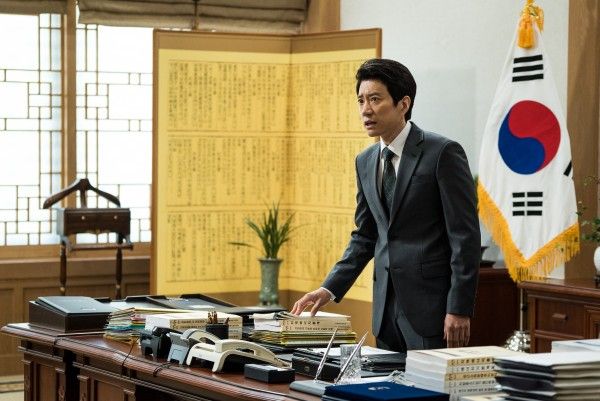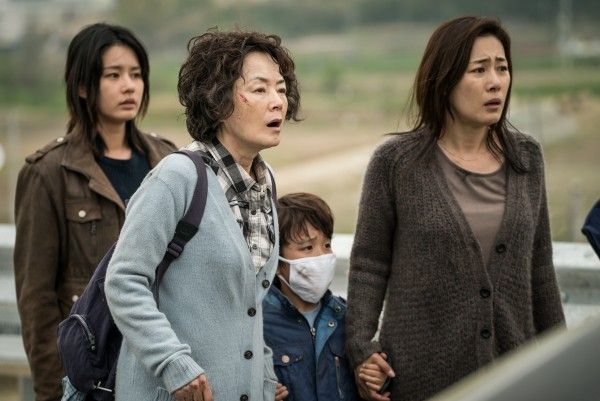Park Jung-woo’s Pandora is a cautionary tale pitched to the melodramatic heights of a disaster movie, and while that’s not necessarily a bad thing, it’s difficult to take a point seriously when you’ve couched it in genre clichés. For Park, the issue he’s worried about is nuclear power plant safety, and his thinking appears to be that if he can show people the worst-case scenario, they’ll be more dubious about the proliferation of nuclear power plants. However, the way the film is executed is like trying to make a serious argument about why we need to start training oil drillers to become astronauts in the event that we need them to drill into an asteroid.
Jae-hyuk is a screw-up who works at the Hanbyul Nuclear Power Plant with his pals. While he dreams of getting out, especially since his brother and father died in a previous incident at the plant, he begrudgingly goes to work every day alongside his girlfriend Yeun-ju. When oversight and human error leads to a meltdown, Jae-hyuk tries to save his fellow workers while Yeun-ju works to get out of the city along with Jae-hyuk’s mother, sister-in-law, and nephew. Meanwhile, the plant’s chief tries to coordinate a rescue effort as the President’s efforts are stymied by the country’s duplicitous Prime Minister.
To Park’s credit, he doesn’t approach his topic of nuclear meltdown from a panicked place. Although the movie is pitched to the rafters, it starts at a surprisingly mature and welcome place, which is that while nuclear power isn’t inherently dangerous, the human systems surrounding it are ill equipped to handle the awesome power at their fingertips. Park’s argument seems to be that when there are openings for shortcuts and oversights, those shortcuts and oversights will occur. It’s a disaster whose outcome will be an act of man rather than an act of God.
Unfortunately, while his argument may be measured, his tone is hysterical. About 80% of the dialogue in Pandora is just people screaming at each other, and while the intensity works in some scenes, the fact that Park never allows for low-key moments means that the film eventually becomes exhausting. If everything is intense, then nothing is, and there’s no room for the story to breathe. In his attempt to draw the audience into a state of panic, he ultimately ends up making his story feel even more distant.
However, there is one scene in Pandora that deserves special recognition, and I’ll say up front that it’s a bit of a spoiler (although you can probably predict if you’ve ever seen a disaster movie). In the scene, Jae-hyuk has agreed to sacrifice himself in order to prevent a catastrophic meltdown, and he’s sending out a video message over his helmet camera. The scene plays pretty much the exact same way as Bruce Willis’ farewell video to Liv Tyler in Armageddon, except for one key difference. In Armageddon, Willis goes out in a very “manly” way. He doesn’t admit fear. He doesn’t admit doubt. It’s a “heroic” goodbye. Park plays his scene with more honesty. A weeping Jae-hyuk curses his fate and acknowledges his fear, and it makes the scene far more effective.
If Park had played to this kind of reality instead of largely making his characters feel like stock figures in a cautionary tale, Pandora could have been something special. But as it stands, the tone of the film conflicts with the message Park wishes to convey, and the resulting picture is a tedious lecture.
Rating: C-
For my other reviews out of the Macao Film Festival, click on the links below:



